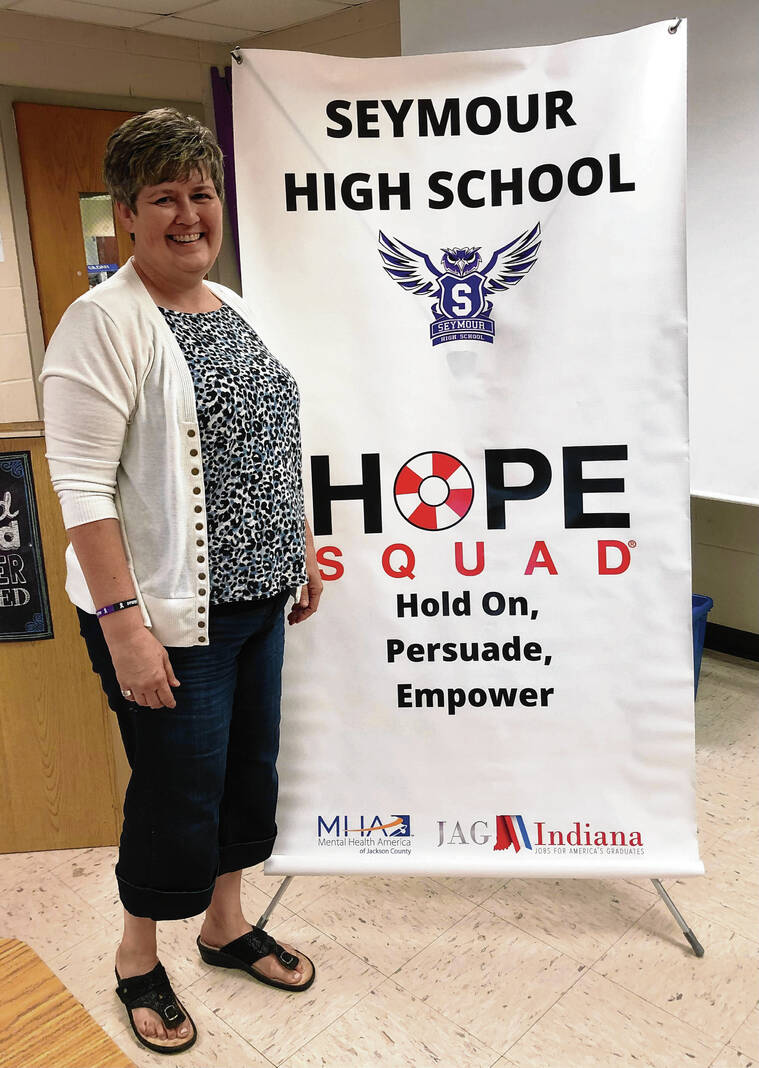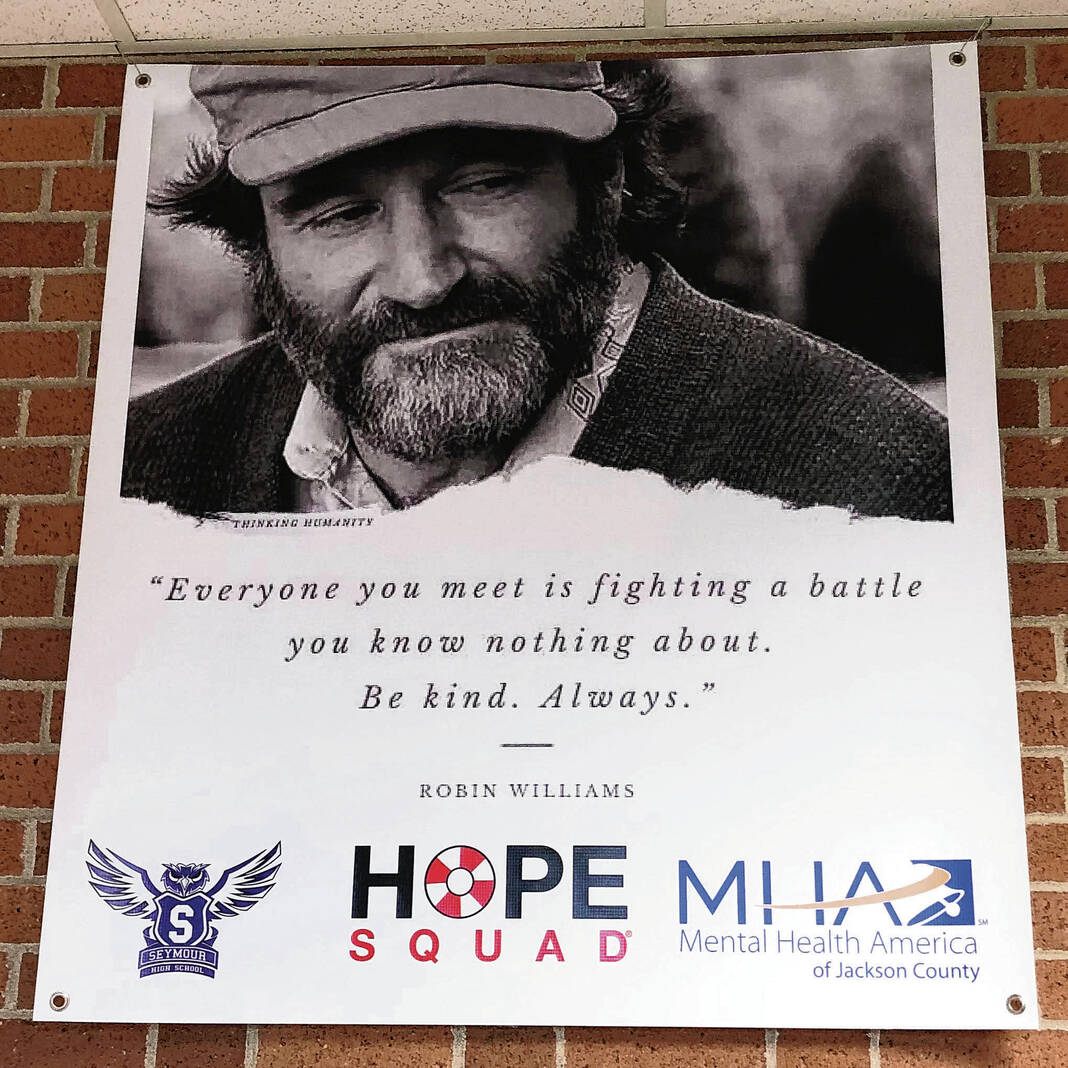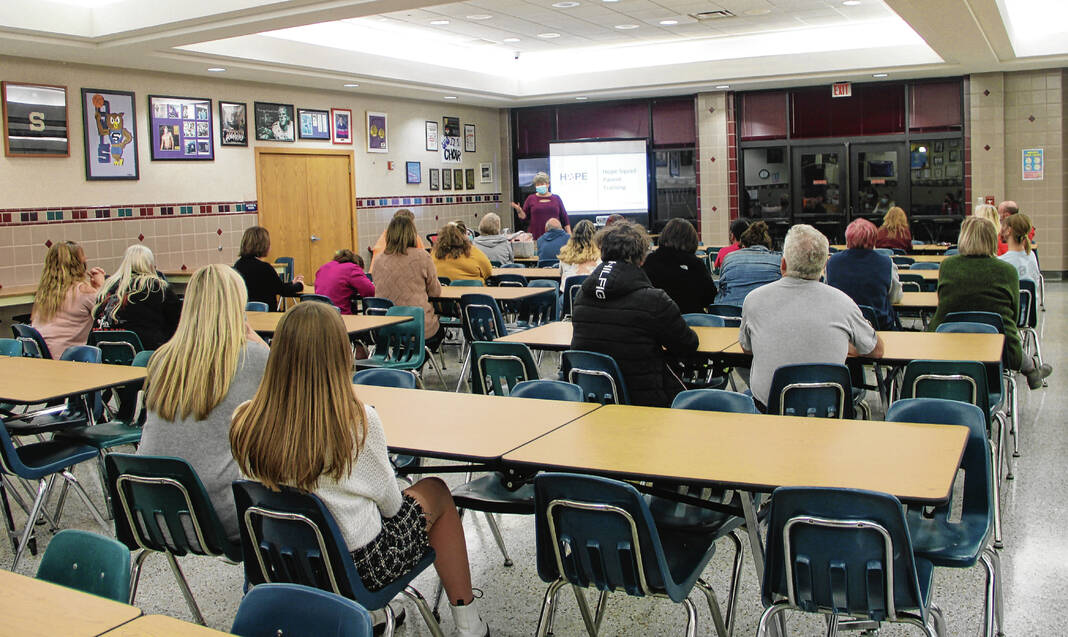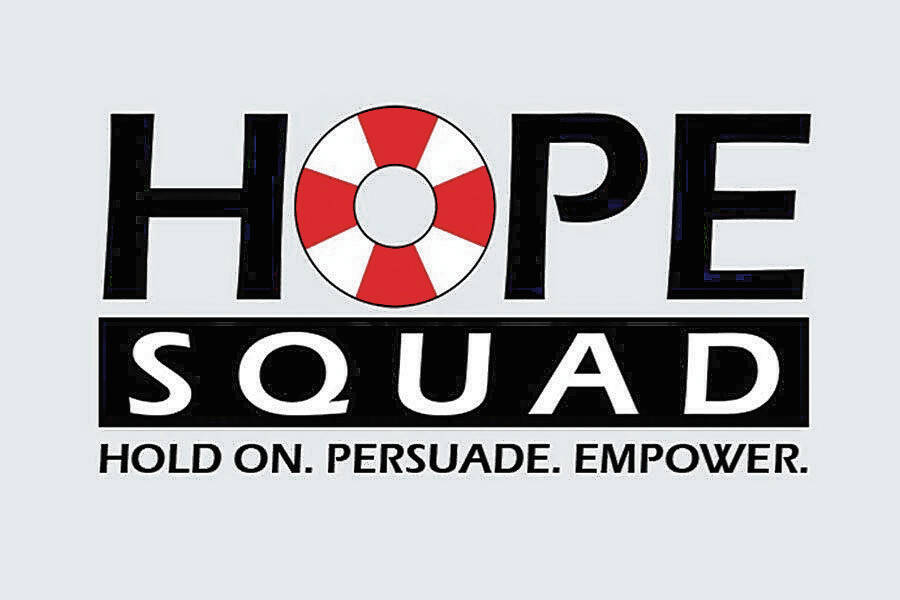“Everyone you meet is fighting a battle you know nothing about. Be kind. Always.” — A quote by late actor Robin Williams, who died by suicide in August 2014.
A banner with Williams’ quote and his photo was placed by Seymour High School’s Hope Squad in a school hallway to raise awareness. The squad was implemented last year at the high school in an effort to reduce youth suicide through education, training and peer intervention.
The program was created in 2004 by Gregory A. Hudnall, a high school principal in the Provo City School District in Utah, after he had dealt with the loss of students to suicide during his tenure.
Celeste Bowman, a Hope Squad adviser at SHS, said the squad is a peer-to-peer suicide prevention program where students are nominated by their classmates as trustworthy peers and trained by advisers.
“Students nominate a classmate who they think other students would be confident talking to if they were struggling or had something going on in their lives,” she said. “So obviously, the other students are going to know who is trustworthy and who gives good advice, and that’s part of Hope Squad training, to know when to give advice and when to go for help.”
Last year, there were about 15 to 20 students involved in the organization.
“We wanted 40 members, 10 from each grade, but I’d rather have a good core group of students rather than a large group that’s not interested,” Bowman said. “Rather than giving good advice, the students need to be good listeners, they need to be compassionate, understanding and know when and how to get help.”
Hope Squad students are not expected to do any kind of counseling, but they are the eyes and ears of the school, so they know what’s going on and know what to do when they see or hear something concerning, said Bowman, who also is a Jobs for America’s Graduates specialist at the school.
“It’s a concern to know when a young person is struggling with being bullied, with thoughts of harming themselves or with suicidal thoughts and not know how to get help or where to go,” Bowman said. “It’s the hardest thing I could imagine for a student to take that responsibility upon themselves, so through Hope Squad, we want to raise awareness about mental health issues and also stop the bullying.”
She said a mental health issue is no different than a physical health issue, and once people start realizing that, there will be a better understanding of mental health in society.
Bowman is one of five advisers who work with the squad. Other adults helping with the group are Seymour Community School Corp. employees Shawna Boas, Nikki Storey and Kylee Shippee. Becky Bujwid of Centerstone and Diane Hirtzel, a nurse practitioner, also are advisers.
“To me, it’s important the students have people in the high school that they know and are here every day if they need to refer someone on and also people from the community in general,” Bowman said.
Hope Squad is a partnership between Seymour High School, JAG and Mental Health America of Jackson County.
“Mental Health America of Jackson County has been a big supporter in helping us fund Hope Squad, and the first year of Hope Squad here at the school, MHAJC and JAG had funding that got us through our first year,” Bowman said. “After that, MHAJC raised some grant money to keep it going here, and they have enough to fund a squad at Seymour Middle School if we can get it going.”
The Hope Squad just had its first meeting of the school year and the turnout was small, but they will work to increase participation, Bowman said.
“The students have decided to meet during student resource time on Purple Mondays,” she said. “The squad members want to begin writing articles for the school newspaper, and the first one will be about Suicide Prevention Awareness Month and the 988 Suicide and Crisis Lifeline.”
Bowman said the students plan to work with Mental Health America of Jackson County and serve in the organization’s booth at the Seymour Oktoberfest.
“We are also working to plan the QPR (question, persuade, refer) training for Hope Squad members, and students are researching fundraising opportunities to help fund other activities,” she said.
Everyone involved with Hope Squad last year received training from the national QPR program, which teaches students how to have a conversation with someone who is considering suicide and ask them questions, try to persuade them to get help and then refer them or take them to get help.
Bowman said her JAG students want to do something for Suicide Prevention Awareness Month, too.
“I’m going to try to have them work with the Hope Squad students,” Bowman said. “They want to pass something out that’s business card size with the 988 Suicide and Crisis Lifeline and more information with English on one side and Spanish on the other.”
She said the COVID-19 pandemic showed us that mental health is very important and needs a lot more attention, as the number of people dealing with their mental health has gone up since the pandemic started, and there is now a greater need in that area.
Bowman said a few recommendations for new squad members have already come in for this year, and she looks forward to adding more students to the program.
For information about Hope Squad, visit hopesquad.com. Students and parents who have questions may email Bowman at [email protected].




